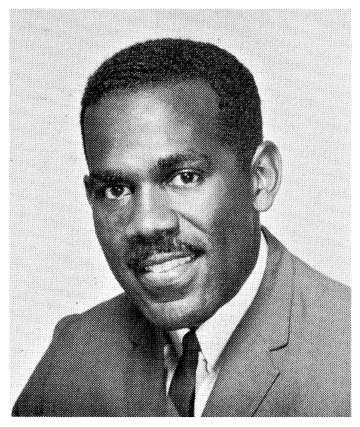
Maryland State Archives
In 1931, Arthur King’s native Prince George’s County, Md. was typical of communities across the nation struggling in the midst of the Great Depression and where racial segregation was the order of the day. African-Americans were beset by discrimination limiting their ability to find work, live in certain neighborhoods, obtain an education and engage in the political process through voting.
Life in Vansville, a small community near Beltsville just outside the nation’s capital where King grew up, could have meant learning to adapt to the status quo and how to navigate the treacherous waters of racial injustice. Instead, King’s parents, Arthur and Hester V. King, were relentless in their efforts to end the social inequalities in their community. In 1935, Hester King was instrumental in the founding of the local branch of the National Association for the Advancement of Colored People, a position she held for 27 years.
Consequently, King’s formative years were shaped by his parents’ activism and that of other social justice advocates who, seemingly without fear or compromise, led the charge for racial equality in their community.
When King entered Maryland State College in the late 1940s, the fight for racial justice was intensifying. Communities across the country were rising up to mount legal challenges to dismantle the vestiges of segregation that had become entrenched throughout society, including the educational system.
King graduated from Maryland State in 1952, two years before the landmark 1954 decision in Brown v. Board of Education, which led to integration of the nation’s public primary and secondary schools. He operated a family business in Simpsonville that provided animals for medical research.
He added to his academic credentials by earning a master’s degree in agriculture from the Imperial College of Tropical Agriculture in Trinidad, and a law degree from Catholic University.
The Brown ruling energized the civil rights movement and inspired great advances in social justice. The turbulent 1960s also served as a sobering reminder that change would not come easy. It was during this time the political landscape began changing and the number of African-Americans serving in public office rose dramatically.
In 1967, King became the first Black to serve in Maryland’s General Assembly from Prince George’s County, at the time an overwhelmingly white, mostly rural subdivision. He had been an underdog and was not expected to win the seat. It turned out his new constituents unknowingly made him the first Maryland State (University of Maryland Eastern Shore) alumnus to be elected to the state legislature, according to the Maryland State Archives.
King’s upbringing served him well in Annapolis, where he fought against housing discrimination and educational inequality.
In 1970, African-American lawmakers in the General Assembly formed the Legislative Black Caucus and King’s peers elected him their first chairman, a position he held until 1972.
In February 1972, Bettye Moss, a columnist for the Baltimore Afro-American newspaper, playfully described King as “more handsome in person than in photos” in an item on the caucus’ opposition to a gun control bill that included an objectionable “stop and frisk” provision.
His tenure as a lawmaker ended in 1974 with an unsuccessful bid to win the Democratic nomination for a state senate seat representing Prince George’s County. He returned to private life, serving as an administrative law judge for federal prisons in Colorado. He eventually returned to east coast to be a public defender and an attorney in private practice in Martinsburg, W.Va. in the 1980s.
Arthur A. King died in Martinsburg, W. Va. Jan. 25, 1990 at age 58.

